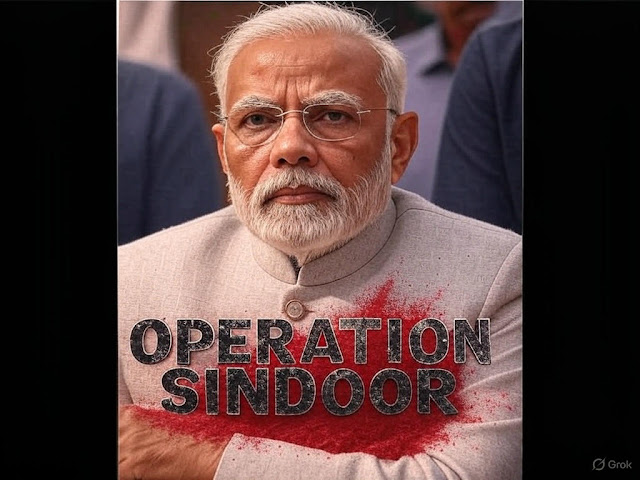Will AI Steal Hollywood's Soul? The Thrilling Clash of Tech and Human Creativity 🤔
AI in Film: The Future of Storytelling or the End of Human Creativity?
Would You Watch a Movie Written by AI?
A short
film titled Sunspring became news in 2016 when it brought attention because an
AI machine called Benjamin wrote its complete material. The result? The film
delivered strange yet comedic text ("I need to find a baby!") which
fascinated viewers but also left them confused.
Artificial
intelligence continues its path of evolution beyond experimental stages to
transform the Hollywood entertainment industry in present times. Launched by AI
software called Benjamin the short film Sunspring became a global news story
because it demonstrated how machines now control multiple steps in modern film
production and distribution methods. When artificial systems assume creative
responsibilities it creates an essential dilemma concerning their role in
artistic development.
This
exploration analyzes AI film impact alongside the indispensable human element
needed for the most impactful stories.
1. From Gimmick to
Game-Changer: How AI Entered Hollywood
The
entrance of AI into film production started with pattern recognition programs
that consumed large script databases to produce new contents. The initial
attempts like Sunspring started from a basic level but AI services have evolved
into skilled co-developers of content today.
ScriptBook
uses platforms that predict a movie's success through examinations of story
elements such as themes and character progression and emotional momentum
detection.
Warner
Bros. uses Cinelytic AI to calculate which cast members would enhance the
financial performance of their films through budget analysis.
The
voice cloning technology used in Roadrunner sparked ethical questions when it
was applied to recreate Anthony Bourdain's voice for the documentary.
Can AI
exhibit true creative abilities in an intellectual discussion?
The
writer John August who has received an Oscar award insists that “AI can mimic
structure but not soul.” Numerous filmmakers apply AI as a power to develop
human creative abilities instead of replacing them entirely
2. AI Behind the Scenes: Pre-Production to Post
Pre-Production:
Faster, Smarter Planning
The
artificial intelligence program LargoAI performs social media and previous work
evaluation to determine actor suitability.
The
concept art previously requiring artists several weeks produces professional
renditions through Artbreeder style fusion abilities.
Google
developed Project Starline which created virtual 3D models of locations while
lockdowns occurred and The Mandalorian demonstrated such technology through its
LED walls.
Production:
AI on Set
Real-time
adjustments of camera frames are performed by Smart Cameras using AI
technology.
A budget
of $200M was spent to make De Niro younger in The Irishman yet doubts emerged
about whether this investment achieved genuine age progression.
Rogue
One used AI to digitally revive Peter Cushing as Grand Moff Tarkin creating a
controversial moment in the film.
Post-Production:
Editing, VFX & Sound
The
Adobe Auto Reframe tool processes aspect ratio change for social media
platforms instantly.
The
startup Respeecher along with other companies creates artificial voice
capabilities which enable dubbing and re-create voices of deceased actors.
Artificial
intelligence technology allows low-resolution footage to upgrade into
high-quality footage which brings first-rate visual effects to a price range
that independent films can afford.
3. Marketing & Distribution: How AI Sells
Films
The
process of movie creation receives assistance from AI systems while they also
serve as promotional tools for product distribution.
The
algorithm at Netflix determines how 80% of its viewers select their content (Nielsen,
2020).
The Fox
marketing team employed Watson from IBM to generate the horror-focused trailer
for Morgan that targeted maximum suspense effects.
The
screenplay analysis system Pilot functions alongside past successful projects
in order to guide studio decisions for movie production.
Lynda
Obst describes AI as a powerful version of focus group research. The technology
shows viewers their future wishes even before they can articulate them.
4. The Dark Side: Ethical Dilemmas of AI in Film
Job
Threats & the 2023 Hollywood Strikes
The
Writers Guild of America and Screen Actors Guild-American Federation of
Television and Radio Artists strikes brought attention to actor and writer job
threats from artificial intelligence systems. AI systems cannot produce punch
lines that activate strong emotions although they can effectively reduce worker
salaries according to comedian Sarah Silverman.
Bias
& Stereotypes
The
training data used by AI to create scripts can enable it to perpetuate old
clichés. The creativity of artificial intelligence created a historical drama
screenplay in 2023 which applauded colonial practices due to its exposure to
unbalanced information.
Who Owns
AI Art?
In 2022
the U.S. Copyright Office established that automatic art creation from AI
lacked copyright ownership capabilities since unique authorship remains
reserved for human artistic creators.
The
debate arises regarding the post-death use of actors' images through deepfakes.
The estate of Robin Williams prohibited AI interpretations whereas James Earl
Jones gave permission to keep using his voice for the role of Darth Vader
5. The Future:
Collaboration Over Replacement
The
purpose of AI technology serves to strengthen the artistic capabilities of
creative individuals rather than take their position:
Indie
filmmakers now possess the capability to achieve Hollywood-standard visual
effects by using Runway ML without facing budget constraints.
Global
Storytelling advances because AI translation eliminates language barriers to
ensure more people watch films.
AI-driven
movies can adjust their content through real-time involvement from viewers
which results in interactive story experiences.
The
fundamental essence of storytelling has always belonged to human beings. As
Christopher Nolan says:
A story
should have technology work for it and not the reverse way.
Final Verdict: AI is the
Brush, Humans Are the Artists
Modern
Artificial Intelligence transforms film production yet it lacks the capacity to
emulate human feelings plus cultural sophistication and authentic creativity.
Stories that touch hearts originate first from real life experiences combined
with deep commitment combined with the authentic process of becoming creative
art. The next
possible Oscar-winning screenplay could it be written by AI technology? Maybe.
But it won’t feel it. Real art transcends to unforgettable status due to its
essential humanity.

.jpg)


Comments
Post a Comment